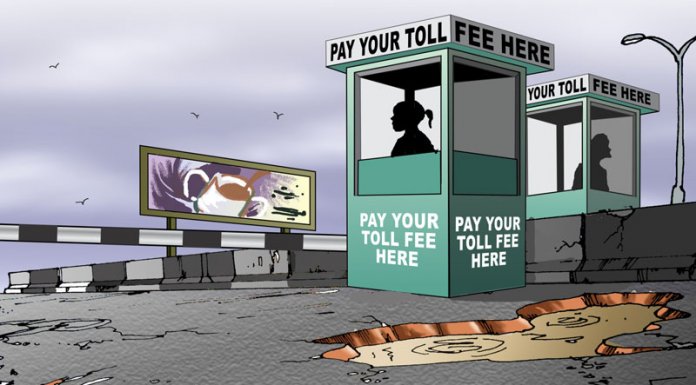The Federal Government plans to re-introduce tolls on the country’s highways in order to raise funds for road repairs and rehabilitation.
Tolls on roads, according to research, are as old as road usage by humanity, but their application has evolved over time with human development.
With regards to history, road tolls have been levied on travelers on foot, wagon, or horseback. It, however, gained prominence with the rise of the automobile usage, and Nigeria once had it on its federal highways.
As a practice, they are charges for use of a public or private road, and often considered a form of road pricing usually to help recover expenditure for road construction, repairs and maintenance. Tolls are equally another means of raising revenue for road infrastructure.
Nigeria previously had tolls on her highways, mostly those owned by the federal government until 2003 when former president, Chief Olusegun Obasanjo, shut them down.
Obasanjo, in his justification of the decision to abolishing the tolls, said the roads should be maintained through revenue from the increase in fuel pump price, which meant petrol tax.
He also said the tolls generated only ₦63 million daily and claimed the revenue was insignificant in terms of the opportunity cost of operating them. Additionally, the then-president noted they were cesspool of corruption because the government found it difficult to track their earnings.
But tollgates are officially coming back, 18 years after Obasanjo scrapped them, the Minister of Works and Housing, Mr. Babatunde Fashola, announced last Wednesday.
Road Tolls Returns
Speaking to journalists at the State House after a meeting of the Federal Executive Council (FEC), Fashola informed that the country was returning to tolling its highways.
He said there was no law that prohibited Nigeria from tolling its highways, adding that new designs for the toll plazas had been concluded and materials to be used for the construction factored into the designs as well as every necessary consideration about the plan.
Fashola explained the government was examining the method of banking transactions to be adopted at the tolls which would largely operate electronically to minimise cash transactions.
He equally noted that the government wanted the electronic transactions done without impeding vehicular movement, in addition to acquiring more land to accommodate the 10-lane plaza plan. This, he however, said was a challenge.
“Let me just clarify this impression about tollgates. There is no reason why we cannot toll; there is no reason. There was a policy of government to abolish tolls or as it were, dismantle toll plazas, but there is no law that prohibits tolling in Nigeria today,” said Fashola.
